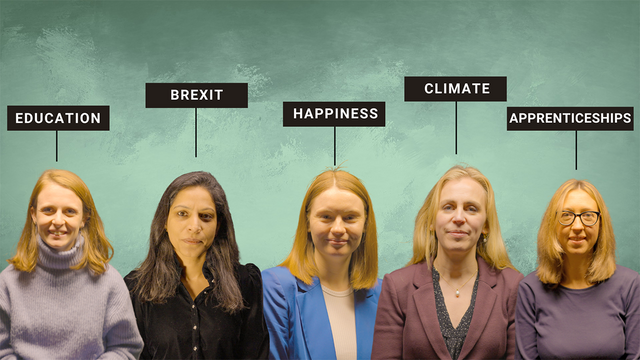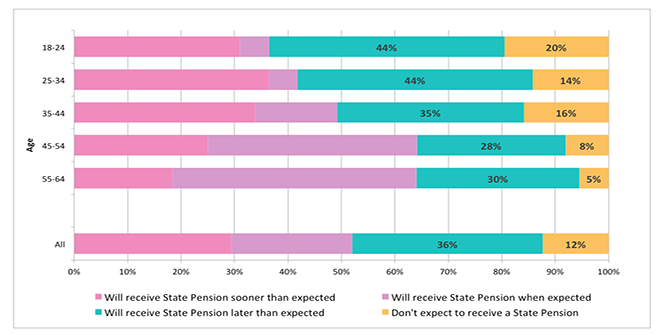 Stewart Lansley writes that Prime Minister Liz Truss’s economic philosophy deepens the division that lies at the heart of Britain’s deteriorating social and economic record. The mini-budget announced on Friday, including the abolition of the 45p tax rate and the lifting of bankers’ bonus cap, overwhelmingly favour the very rich, he says.
Stewart Lansley writes that Prime Minister Liz Truss’s economic philosophy deepens the division that lies at the heart of Britain’s deteriorating social and economic record. The mini-budget announced on Friday, including the abolition of the 45p tax rate and the lifting of bankers’ bonus cap, overwhelmingly favour the very rich, he says.
The new governing philosophy, it seems, is to be built around an intensification of Britain’s deep-seated pro-rich, anti-poor bias. Although this bias is deeply embedded in large parts of the economic and social system and the way the proceeds of growth are so thinly shared, Liz Truss’s immediate predecessors, from David Cameron to Boris Johnson, were much more cagy about the impact of their policies. This partiality is now unashamedly proclaimed. Most of the financial measures announced last week – from the abolition of the 45p tax rate to the lifting of the banker’s bonus cap – overwhelmingly favour the very rich.
In contrast, the new Government remains wedded to a social strategy that is more anti-poor than anti-poverty. Rich and poor citizens are being judged and treated by very different standards and expectations. Benefit levels – already amongst the meanest among rich countries – are to continue to slide in real terms (after inflation) while the various benefit caps – such as the two-child limit – imposed during austerity, will continue to bite. The sanction regime – in which claimants are penalised for, in the Department for Work and Pensions’ view, not trying hard enough to find work – is, if more quietly, being toughened, such as for those working part-time.
The income wealth gap is set to continue to widen, with the highly questionable presumption that the rich make much bigger economic and social contributions than others. Rewards and rights for the rich and responsibilities and penalties for the poor are a long way from the more even-handed post-war politics of reciprocity, and much closer to a pre-war hierarchy of rights and responsibilities. As George Orwell then warned, Britain is like a family with “rich relations who have to be kow-towed to, and poor relations who are horribly sat upon”.
The last two weeks have brought a return to the language of the pro-market, small state, anti-equality philosophy applied from the early 1980s. As Keith Joseph, a key adviser to Margaret Thatcher, declared in 1976: “true” Conservatives need “to make the case against egalitarianism… The pursuit of equality has done, and is doing, more harm, stunting the incentives and rewards that are essential to any successful economy”.
Yet the pro-rich ideology of neoliberalism has been firmly discredited. The 2008 crash shattered the hubris of the pro-market school while it was further undermined by the destructive and over-applied post-2010 programme of austerity. Even its former cheerleaders have changed their tune. The IMF talks of neoliberalism being “oversold”. For Henry Blodget, a former leading Wall Street analyst, market capitalism has turned America into a “nation of overlords and serfs”.
Forty years on we now have the hard evidence of the inequality-driving real life experiment. Far from “benefiting everyone”, as Mrs Truss has claimed, Britain, one of the most equal of rich nations in the 1970s, is now the second most unequal (after the United States). As the gains from growth have been colonised at the top, the child poverty rate, in relative terms, has more than doubled. The poorest fifth of Britons are much poorer than their counterparts in other, more equal nations. Germany’s poorest, for example, are a third better off than those in Britain.
The promise was that the political licence to get rich, along with the weakening of state social protection, would bring a more dynamic economy, with all getting richer, faster. Truss’s primary goal may be “growth, growth, growth”, yet the pro-market, anti-state doctrines of the last forty decades have delivered low levels of private investment and productivity, along with a more turbulent economy and more frequent and more damaging financial crises. The result: weakened growth. When big corporations are already using 80 per cent of rising profits to fund dividend payments rather than higher investment, the reversal of the planned rise in corporation tax makes little sense. Lower tax rates in the 1980s greatly benefited the rich, but failed to yield faster growth. Instead, finance and corporate leaders have used their greater freedom to spawn a range of self-enriching business methods that have also contributed to Britain’s low-growth, low-productivity, low-wage economy.
The IMF has shown that high levels of inequality have been associated with brittle economies that are prone to crisis and weak growth. Key elements of Britain’s economic model – of structural poverty, insecure employment and a low wage share – have created consumer societies with too little demand, forcing them into a self-destructive dependency on debt. Relying on near unprecedented tax cuts to fire an economy weakened by austerity, COVID, and Brexit is a big gamble, comparable to the failed 1972 ‘Barber boom`, while sustainable, pro-well-being growth will always depend on a more equal society. There are also more effective ways of boosting growth. A greater focus on public investment , for example, would not only concentrate activity on meeting unmet social needs, but is likely to have a stronger effect on economic activity than Kwasi Kwarteng’s apparent reliance on boosting the luxury spending of the rich.
Excessive inequality is not just economically ‘corrosive’. As the Levelling Up White Paper has documented, it has left a long trail of social distress, from a chasm in rates of life expectancy to rising levels of destitution. Britain has, in turn, seen a rising gap between the electoral turnout of the richest and poorest groups, while the return of high global concentrations of income and wealth has helped drive global warming. The richest tenth of the global population emit 48 per cent of global emissions, while the poorest half emit 12 per cent. Britain has engineered the return of a form of luxury capitalism last seen a century ago, with extreme affluence alongside severe social scarcity. The 1970s’ dictum from the influential economist Fred Hirsch that ‘so long as material privation is widespread, conquest of material scarcity is the dominant concern’ has been discarded.
Trussonomics’ emphasis on higher inequality as an economic instrument has already been tried and failed. Instead of a governing philosophy built on narrowing today’s yawning and unjustifiable wealth and income gaps, building stronger communities, and ending excessive levels of corporate extraction, we are being fed more of the politics of division that lies at the heart of Britain’s dismal social and economic record.
__________________
Note: the above draws on the author’s new book, The Richer, the Poorer, How Britain Enriched the Few and Failed the Poor, a 200-year history ( Bristol University Press, 2021).
 Stewart Lansley is a visiting fellow at the University of Bristol, a Council member of the Progressive Economy Forum and the author of Breadline Britain, The Rise of Mass Poverty (with Joanna Mack, 2015) and The Cost of Inequality (2011).
Stewart Lansley is a visiting fellow at the University of Bristol, a Council member of the Progressive Economy Forum and the author of Breadline Britain, The Rise of Mass Poverty (with Joanna Mack, 2015) and The Cost of Inequality (2011).
Photo by Stock Birken on Unsplash







